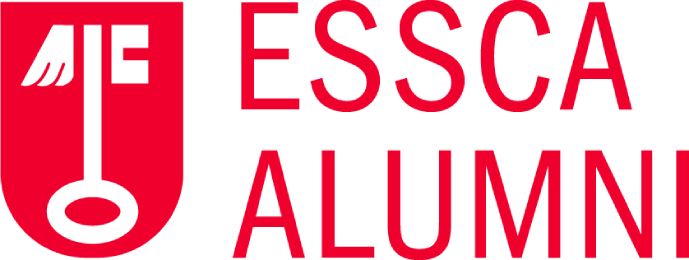Jacques DE LATROLLIÈRE
Jacquesde LATROLLIÈRE was born in Paris on March 5, 1926. A graduate of the capital's Institut d'Etudes Politiques, otherwise known as "Sciences Po", he became General Secretary of the school on September 1, 1967, while also teaching courses in economic and social history. The newly appointed Director Jean LOTTE (1967/74), having decided not to replace Abbé POURRIAS, combined his duties with those of Director of Studies. As a result, some of the work fell to the General Secretary, who was also in charge of accounting and administrative disputes. His duties also made him the main organizer of the entrance examinations, which he brilliantly organized every year. In 1967, some 200 candidates flocked to the doors of rue Merlet de Laboulaye, but nineteen years later, for his last test, 3,613 candidates attempted to obtain the famous entrance ticket to ESSCA, now located on rue Lakanal...
Mr. de LATROLLIÈRE is the embodiment of a pivotal era, that of a twofold transition, both geographical: he will have successively known the two sites of theHe was also one of the driving forces behind the school's development and profound transformation. Indeed, while ESSCA had 162 students when it joined in 1967, it had more than 500 by the time he left in 1986.
From 1980 to 1986, he was Director of Undergraduate Studies and Examinations.
The achievements of which we have the most to be proud are generally those that outlast or outlast us. In this sense, the 1978 creation of the " ESSCA Foundation ", of which he was at the origin, is emblematic, as it clearly defines his preoccupation with solidarity, and the coherence between his initiatives and ideas. The formula was ahead of its time, at a time when this debate is stirring up the Grandes Écoles, and when everyone is experimenting with solutions ofexemptions, scholarships, specific foundations, loan formulas and other honorary loans designed to lighten the financial burden of the less well-off. Jacques de LATROLLIÈRE was to become the Association' s first Chairman in 1978, a position he would take up again later in the 90s.
For two decades he worked tirelessly on behalf of the School, infusing it with not only his universally-acknowledged competence, but also an infectious enthusiasm that he clearly knew how to pass on to all students.

From this point of view, the preliminary survey launched among alumni with a view to celebrating this centenary is proving most enlightening. Aplebiscite, an avalanche of praise and superlatives! Impossible to list them all. Here's a small selection to set the tone:"Un grand bonhomme " for the Ford class (1967/70),"Une sacrée personnalit é" according to Alix de MALARTIC (class of 1982)," A subtle balance of natural authority, humor and great culture, who didn't take himself too seriously and whom we naturally respected - in short, a gentleman! "Marc CROUTON (class of 1981) assures us that he was " an outstanding personality in terms of class and humanism ", writes Patrick MOREAU (class of 1981). In short, although his modesty should have suffered cruelly, he was unanimously acclaimed. The "moral elegance of a man with a heart", to paraphrase the letter of another alumnus, had won the esteem of the 22 successive classes he had to lead, a total of 1600 students! 23 years after his departure, his memory remains intact, and few have forgotten what a thoughtful and kind-hearted interlocutor he was, and never ceased to be.
In mid-1986, his collaboration came to an end. However, he returned in1991 as anadvisor to the management team.
Since then, he has contributed his invaluable knowledge to the composition of the anniversary brochure entitled "Quatre- vingt-dix ans de l'histoire de l'ESSCA", for which he is 3⁄4 years the editor.
For over forty years, Jacques de LATROLLIÈRE has been the school's indispensable historiographer, without whom any researcher would probably be hard pressed to tackle ESSCA's past with any credibility. He is one of its privileged custodians, its living memory, and a generous one at that, never hesitating to share his copious private archives on occasion. This modest work owes them a debt of gratitude. Our warmest thanks to them. Anyone interested in benefiting from his insights should first consult his "Propos sur l'Origine de l'École Supérieure des Sciences Commerciales d'Angers", a penultimate presentationdelivered at the Académie d'Angers on May 11, 1984, a slightly revised version of which appeared in the Bulletin de l'Association des Anciens de l'ESSCA, on the occasion of the school's 75th anniversary in March of the same year.



